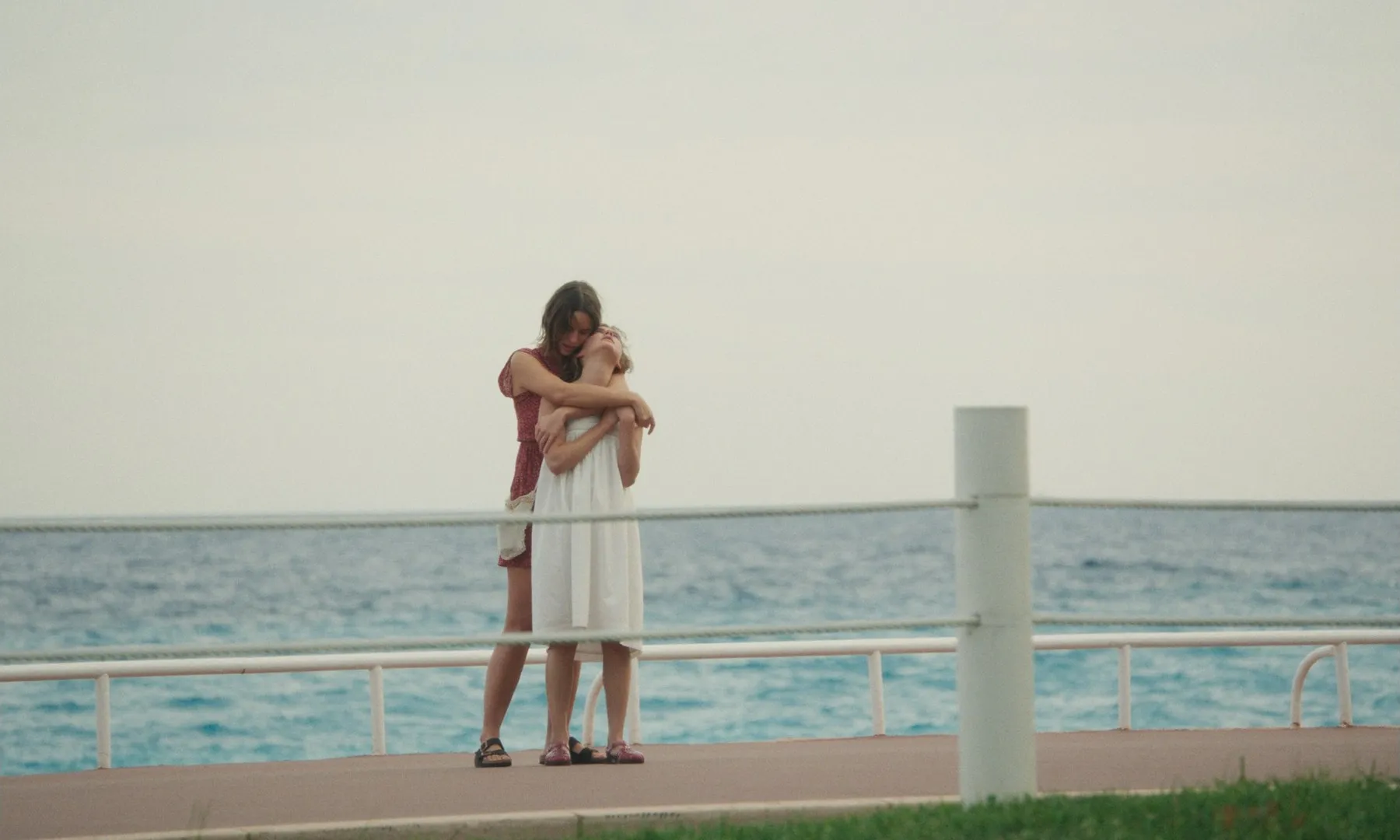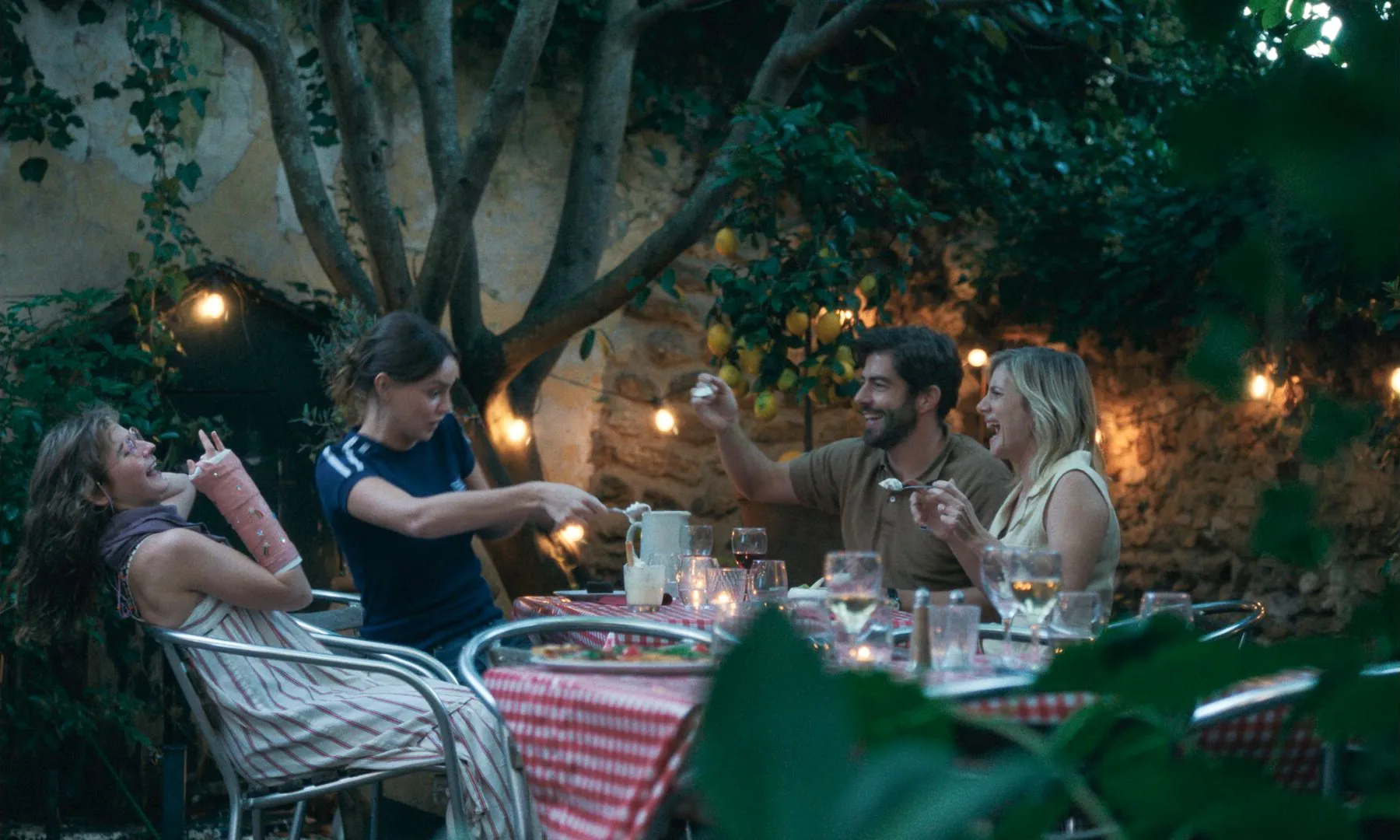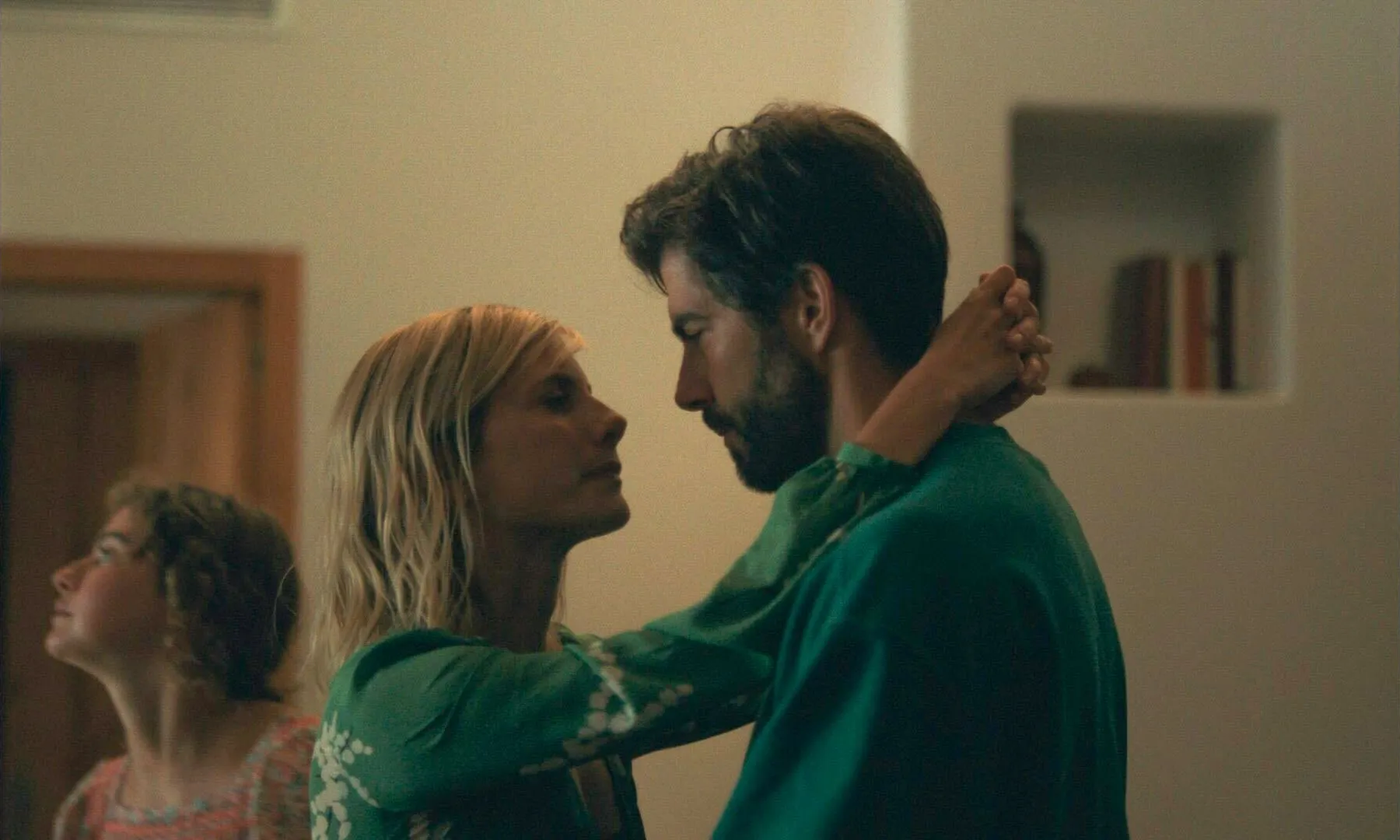What does a life shaped by a persistent question mark truly look like? Actor-turned-director Joséphine Japy’s compelling debut, The Wonderers, positions this very query at its core, meticulously exploring a family’s existence held in a state of suspended animation by an unknown force.
Drawing from her own deeply personal history, Japy constructs an autobiographical narrative about the Roussier family, whose daily rhythm, conversations, and future plans are all dictated by the youngest daughter, Bertille. She lives with a severe, undiagnosed disability that renders her non-verbal and wildly unpredictable.
We are invited to witness this challenging life primarily through the observant eyes of her older sister, Marion, a teenager navigating her own coming-of-age while being forced into a state of maturity far beyond her years.
The film immediately establishes itself not as a story offering easy answers or sentimental lessons about suffering, but as a powerfully intimate and observational drama focused on the complex, quiet, and often exhausting mechanics of human endurance.
The Architecture of Coping
The family unit in The Wonderers is portrayed as a delicate, intricate ecosystem built around a core of profound and unending uncertainty. Their life is a constant, wearying act of improvisation against a backdrop of love and anxiety. Marion, played with a remarkable, understated strength by Angélina Woreth, lives a fractured existence.
She must balance the universal pressures of high school friendships and future aspirations with the specific, immense weight of her responsibilities at home, acting as a part-time caregiver, protector, and interpreter for her sister. Her parents have developed divergent, private methods for survival.
The mother, Madeleine (Mélanie Laurent), maintains a stoic, almost brittle emotional reserve, a psychological shield against the anticipatory grief of a sudden loss she feels could arrive at any moment. The father, Gilles (Pierre-Yves Cardinal), compartmentalizes his life completely, going so far as to hide Bertille’s existence from his professional colleagues, fearing the stigma of disability might harm his career.
This portrayal of internalized, isolated struggle offers a sharp contrast to the often more communal expressions of family crisis seen in much of Indian cinema, where the honor and image of the family, or ‘izzat’, might compel a different, more public performance of coping.
Their apartment becomes a vivid character in itself—a chaotic, cluttered physical representation of their inner lives, yet also a vital, necessary refuge from a world that does not understand. A key scene where Bertille wanders away at a restaurant and returns, beaming, with food stolen from a stranger’s plate, perfectly captures their reality: a strange, unsettling, yet deeply accepted blend of daily stress, dark humor, and relentless adaptation.
The Eloquence of Silence
Joséphine Japy’s direction is a masterful study in artistic restraint. The film’s power is located not in heightened dramatic crescendos but in its quiet, patient observation, a quality that spiritually aligns it with the realist ethos of India’s Parallel Cinema movement.
Much like the foundational works of Satyajit Ray, The Wonderers rigorously avoids sentimentality, presenting life with an unadorned, almost documentary-like authenticity. The force of this approach is channeled through the astonishing performance of Sarah Pachoud as Bertille.
Her portrayal is strikingly physical and deeply sensitive, conveying a rich, unknowable inner world through gesture and gaze, successfully presenting her as a whole person rather than a simple plot device or a symbol of affliction. Japy’s aesthetic choices amplify this realism.
The minimal, almost absent musical score and the preference for deliberate, often static camera work stand in stark opposition to the lushly emotive soundscapes that drive the emotional responses in mainstream dramas from both Bollywood and Hollywood. Here, silence is a narrative tool.
It forces the viewer to lean in, allowing the ambient sounds of life—a sharp breath, a distant siren, the shuffling of feet—and small, unadorned moments to resonate with immense significance. The film resists telling its audience how to feel, instead presenting the unvarnished texture of the family’s experience with stark emotional clarity.
Its original French title, Qui brille au combat, translates to “those who shine in battle,” a fitting and poignant tribute to the quiet, unseen, and fiercely persistent courage the film so skillfully honors.
An Honest, Imperfect Truth
The film’s unwavering commitment to realism also informs its narrative structure, which, like life itself, contains its own share of imperfections. The first half unfolds in a series of carefully observed vignettes that can feel episodic, at times resembling a collection of powerful memories strung together rather than a seamlessly flowing plot.
A significant subplot involving Marion’s misguided and uncomfortable romance with an older man feels thematically detached. While likely intended to show her fumbling attempts to claim an identity and control outside her chaotic home, the storyline consumes valuable screen time without fully integrating into the family’s more potent central drama.
Furthermore, the film’s final act pointedly resists a neat, cathartic resolution, leaving the family’s future feeling ambiguous and uncertain even after new information comes to light. While this lack of closure might frustrate viewers accustomed to the more definitive endings typical of commercial cinema, it feels entirely consistent with the film’s core theme.
It reflects the difficult truth that for this family, a diagnosis does not erase a lifetime of ingrained uncertainty. This choice to embrace ambiguity, however, reinforces the film’s artistic integrity. Japy’s debut is a moving and potent piece of filmmaking whose achievement is its unflinching honesty about the nature of care and the quiet, bone-deep strength required to simply endure, day after day.
The film finds its lasting value in its profound and deeply compassionate look at the kinds of battles fought, and won, far from view.
The Wonderers premiered in Cannes’ Special Screenings on May 15, 2025 and is currently being prepared for wider release in France by Apollo Distribution, with festival and international distribution expanding through late 2025.
Full Credits
Director: Joséphine Japy
Writers: Joséphine Japy, Olivier Torres
Cast: Mélanie Laurent, Pierre‑Yves Cardinal, Angelina Woreth, Sarah Pachoud, Félix Kysyl, Anne Loiret, Juliette Gasquet, Thomas Gioria, Birane Ba, Maxence Tual, Stéphane Varupenne, Ilinka Lony, Lucas Cenciai, Najim Zeghoudi, Pascal Decolland, Serpentine Teyssier
Director of Photography (Cinematographer): Romain Carcanade
Editors: Nicolas Desmaison
Composer: Mattia Luchini
The Review
The Wonderers
Despite some narrative stumbles, including a weak subplot that detracts from its focus, The Wonderers is a profoundly moving and authentic directorial debut. Joséphine Japy's restrained, observational style, combined with outstanding performances, creates an honest and powerful portrait of a family navigating a life defined by uncertainty. It is a quiet film that finds immense strength in its realism and its courageous refusal to offer easy answers, rewarding the viewer with a deeply felt emotional truth.
PROS
- A masterful, restrained directorial style that avoids melodrama.
- Powerful and sensitive lead performances.
- An authentic and unflinching portrayal of family life with disability.
- Effective use of silence and realistic aesthetics.
CONS
- A romantic subplot that feels disconnected and underdeveloped.
- The narrative pacing can feel disjointed in the first half.
- The ambiguous ending may not satisfy all viewers.


















































